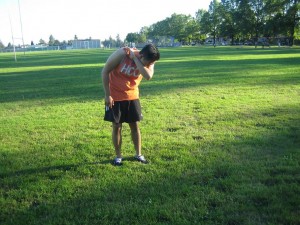Bell’s palsy is paralysis or weakening of the muscles on one side of the face due to damage of the facial nerve that functions in controlling the muscles on the face and can cause that affected side of the face to droop. The damaged nerve also affects the sense of taste and production of tears and saliva. There is difficulty in making facial expressions or blinking the eye as well as simple functions such as eating and smiling becomes more difficult. The speech becomes slurred and there is constant drooling. This condition can occur suddenly, usually overnight and subsides within a few weeks.
Symptoms of bell’s palsy
- Facial drooping and difficulty in making facial expressions such as closing the eye or smiling.
- Drooling
- Sudden onset of mild weakness to paralysis of one side of the face that happens within hours to days.
- Headaches
There is increased sensitivity to sound on the affected side - Lessened sense of taste
- Pain can be felt around the jaw or at the back of the ear on the affected side.
- There is increased sensitivity to sound on the affected side
- Changes in the production of tears and saliva.
- Sometimes, the nerves on both sides of the face can also be affected
What are the possible causes?
- Chickenpox and shingles
- Cold sores and genital herpes
- Respiratory illnesses
- Flu
- Mumps
- Hand-foot-and mouth disease
- German measles
Treatment for bell’s palsy
- Protect the eyes that cannot be closed by using prescribed lubricating eye drops during daytime and an ointment at night to keep the eye moist. Another way to protect the eye during the day is by wearing glasses or goggles. In addition, use an eye patch at night to protect the eye from being poked or scratched.
- Take the prescribed over-the-counter pain medications such as aspirin, ibuprofen or acetaminophen to lessen the pain.
- Apply moist heat on the affected eye. Soak a soft and clean cloth in hot water and wring out the excess. Fold the cloth several times to form a compress and place it on the face until it becomes cool. Perform the process several times all over the face for 3 times every day. The heat from the compress helps in relaxing the muscles and prevents atrophy. Another way is to massage the face first before applying the warn compress.
- Massage and exercising the face with the help of a physical therapist helps in relaxing the facial muscles.
- Turmeric is an anti-inflammatory agent that lessens the inflammation in the face and increases the flow of blood to prevent infection.
- Minimize exposure of the eye to computer screens to prevent making the eyes dry.
- Take the prescribed vitamin and mineral supplements such as B12, B6 and zinc. The ideal sources of vitamin B6 include banana, avocado, meat, nuts, beans and whole grains. The sources of B12 include beef liver, meat, eggs, milk, shellfish and fortified cereals. As for sources of zinc, it includes pork, beef, lamb, chicken, beans, nuts and whole grains.

